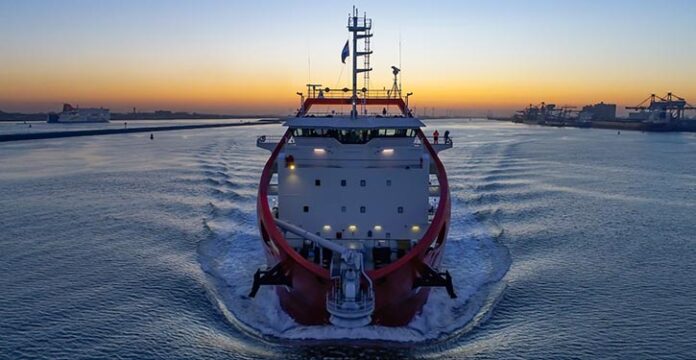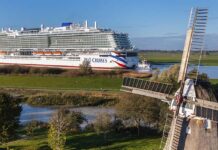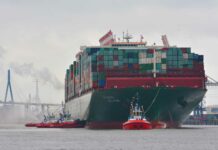Activity in the Dutch maritime technology sector, which consists of over 100 yards and 800 maritime suppliers, rose slightly in 2018. Total turnover increased to €7.3 billion, some €400 million more than 2017. The total employment was 29,072 FTEs, an expansion of almost four percent compared to the previous year. Higher turnover does not always translate into a major growth in profit, however, and price levels remained under pressure in many companies. “Many new orders were received and vessels completed in the Netherlands during 2018,” comments Bas Ort, chairman of the trade association Netherlands Maritime Technology (NMT). “The focus right now is on complex and innovative vessels and we’re working with a huge diversity of designs. Our builders of seagoing vessels have had quite a hard time in 2018. It’s a testimony to their perseverance that they have never stopped innovating and attracting orders for new types of ships, despite the challenges. In this sense, they remain the undisputed spearhead for the sector.”
Around
the world, the upward trend in the order intake for seagoing vessels
continued into 2018. However, even with the new orders, there is
still not enough work to keep all the yards around the world in
business. The consequences of this have been apparent in forced
bankruptcies, mergers and increased government support, particularly
in South Korea, China and Japan. “We saw minor improvements in the
Netherlands in 2018 compared to 2017, both for Dutch yards and
suppliers,” Ort continues. “A small step forward but not one that
came easy to the sector, which is being more creative than
ever.”
Strategic
importance of putting maritime sector on map
The
maritime industry is a strategic sector with considerable social
importance. “Governments, both in The Hague and Brussels, must
recognize the strategic role of our sector and act accordingly,”
Ort underlines. “We need to be able to remain globally competitive.
A sector-specific industrial strategy for the maritime technology
sector is very important in this context. The innovative capacity and
strategic knowledge in the Netherlands need to be preserved, for
instance by the Dutch business community playing a decisive role in
the replacement program of the Royal Netherlands Navy.”
Increasing
the pace of growth
“NMT
wants its members to be able to deliver sustainable, smart vessels
and maritime technology in a global level playing field, with highly
qualified workers working in safe and fair conditions,” Ort
explains. “The Dutch government has a role to play as a launching
customer and provider of support for the export activities of the
Dutch maritime technology sector. If these conditions are respected,
the cautious progress the sector made in 2018 can become a major step
forward in the coming years.
“Maritime regulations should
help stimulate innovations while remaining flexible enough to be
rapidly adapted should developments require this. The shifting
policies of different countries have led to persistent market
disruptions in shipbuilding. A level playing field, both worldwide
and within Europe, is one of the most important and complex issues
for which we strive every day.”




